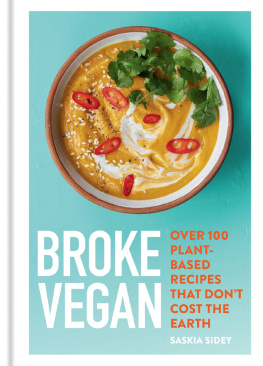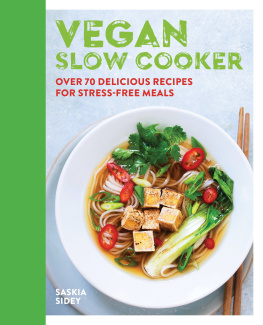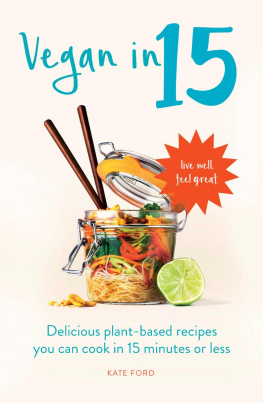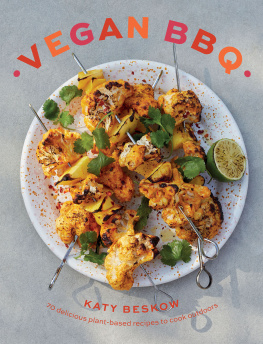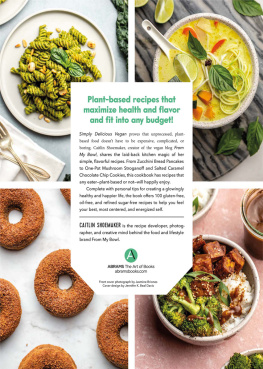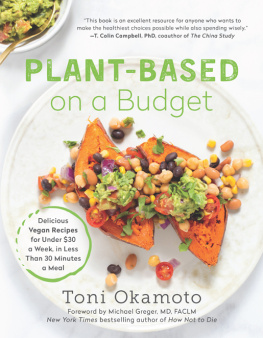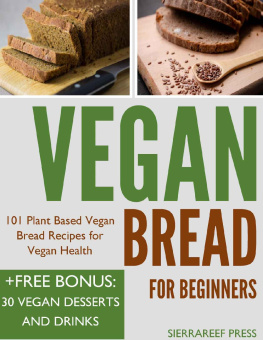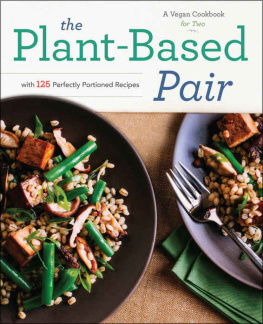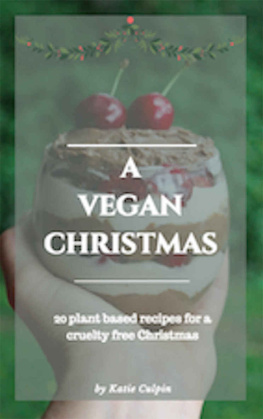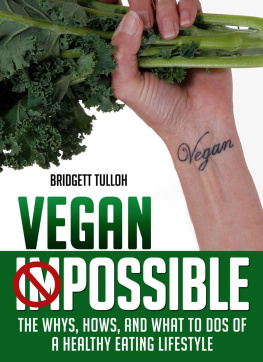SAVING THE WORLD DOESNT NEED TO COST YOU THE EARTH
This book doesnt use any of the expensive ingredients traditionally associated with veganism. There are no meat alternatives in sight. No tofu, tempeh or seitan. There is such a wide variety of fresh fruit and vegetables available that its just not necessary for your food to pretend to be something its not. Vegan food lends itself to saving you money as youre mainly buying fresh produce, not spending lots on expensive luxuries such as meat and dairy.
Where possible, as well as saving you money, this book aims to save you time, but there are some instances where putting in an extra few minutes at the stove will help to coax rich flavour from your ingredients, and that is worth its weight in gold. Here are some tips about how to be a Broke Vegan, so you can save money and eat better.
USE YOUR FREEZER
A freezer can help you to reduce food waste and save money. Always be on the lookout for bargain deals at your local supermarket or greengrocer and freeze any fruit or vegetables that look like theyre about to be past their best for future use. Try freezing herbs in ice cube trays covered in oil. As a general rule for fruit and vegetables, only freeze things that you are going to cook once defrosted, as they wont taste as good raw. Keep your freezer loaded with peas, leftover mashed potato, spinach blocks and batch-cooked meals and youll never go hungry.
SHOP SMART
Shopping seasonally is one of the best ways to cut costs, and your fruit and vegetables will taste so much better. Out-of-season produce is often flown over internationally and the prices usually reflect that. Watch out for bargain deals and reduced items and shop towards the end of the day, when shops often slash their prices; you may need to be flexible and think on your feet, but if you can get inspired by whats on offer then youll save a lot of cash. Buy own-brand where possible in big supermarkets, because it often works out cheaper for canned goods and pantry staples. Shop in speciality shops, such as Asian supermarkets, as well as in neighbourhood stores you can often get up to five times the amount of dried pulses, grains and spices for the same price as their supermarket counterparts. Many supermarkets and greengrocers also sell bags of wonky or misshapen fruit and vegetables at a fraction of the cost of their more picture-perfect cousins.
PLAN, PLAN, PLAN
It sounds obvious but having a plan and sticking to it will help you not to waste any food and therefore save you money. Try and stick to a meal plan for the week, cook in batches and freeze what you dont need, or aim to incorporate leftovers in your weekly menu. Try and arrange your meals around key ingredients: if some of your recipes use just a couple of sweet potatoes but you know that you can get a good deal on a big bag of them, try and incorporate more recipes into your meal plan that use them, to make sure nothing goes to waste. Only buy what you need and stick to your shopping list.
DIY
Where possible, making your own versions of shop-bought classics will save you money. Check out the recipes for for inspiration and think about ways to cook other ready-made favourites at home.
JAZZ UP THE BASICS
Lemon or lime zest and juice, proper seasoning and a drizzle of good-quality olive oil are all instant and cheap ways to elevate your cooking. Broke food doesnt have to be bland, especially if you invest in the key ingredients outlined in .
GROW YOUR OWN
Youre not expected to have a whole garden full of fruit and vegetables, but its a great idea to invest in living herb pots from a supermarket. These are typically only fractionally more expensive than a packet of precut herbs. You only pay once and they keep replenishing themselves every time you pick some. Go for pots of basil, parsley, mint, thyme and chives on your windowsill and youll be able to add heaps of flavour to all your dishes for years to come.

